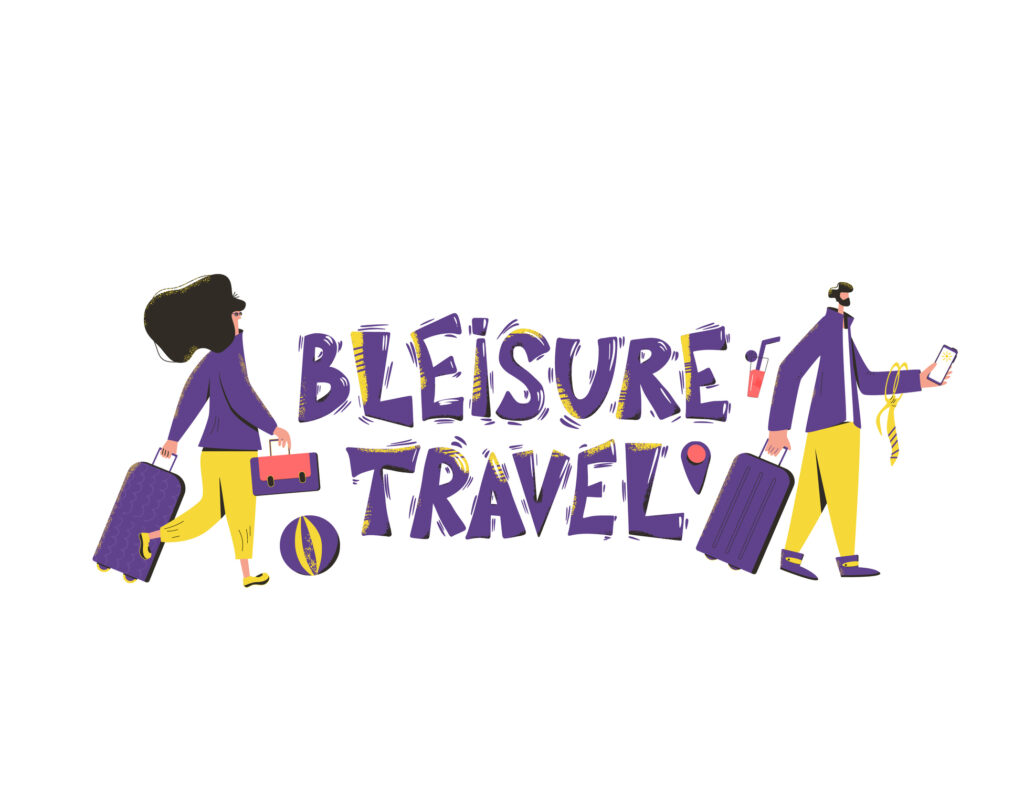

According to a recent Howdy.com survey, two in five Americans who will be traveling for work this year, 49 percent, plan to make the trip a “bleisure” trip. Bleisure combines “business” and “leisure” and is distinct from a “workation,” in which a worker combines vacation with work in a destination of their choice.
While about a quarter of survey respondents choose workcations to save on paid vacation time, 60% of U.S. business travelers prefer bleisure travel. About 64% of U.S. workers attribute the increase in bleisure to improved work-life balance as business travel recovers after COVID-19. According to Austin, Texas-based talent sourcing company Howdy.com, many have embraced the concept, even though only about 30% of workers know the term bleisure.

In a Howdy.com survey of more than 1,000 full-time employees across the US, more than two-thirds of respondents said they would be attracted to a job that encouraged bleisure, while many suggested that companies should offer “free days” on business trips to encourage bleisure. The survey also revealed that nearly 75% of respondents would be more inclined to work with international teams if there were more opportunities for bleisure travel.
Workers highlight several benefits of bleisure travel, including relaxation after work, reduced vacation costs, simplified planning, and reduced paid time off requirements. On average, leisure trips add four paid vacation days, costing about $3,900, and 67 percent choose to stay in the same accommodations they used for work.
Business travel surges
According to Howdy.com, business travel is rebounding in the wake of the COVID-19 pandemic: 41% of full-time American workers have traveled for work in the past year, of which 80% was domestic, 14% was a mix of domestic and international, and 6% was exclusively international.
Surveys show that workers have taken an average of two business trips in the past year. Of those, one in five took time off work to sightsee or relax. This trend is most prevalent among Gen Z, with one in four choosing to take time off work, compared to just 12 percent of Baby Boomers. While most workers enjoy travel benefits such as round-trip airfare, accommodations, meals, taxi fares, and travel insurance, 17 percent still feel their company doesn't cover all necessary expenses.
According to the survey, full-time employees in the U.S. are entitled to an average of 18 days of paid vacation, but typically only take 15 days, averaging two vacation days per year. However, 22% of employees feel guilty about taking time off work. Additionally, 32% have used paid vacation time in the past to extend a business trip, and many expect their companies to encourage them to take time off, with 89% thinking that companies should provide travel benefits.
According to a recent AHLA survey, approximately 61 percent of Americans are planning an overnight leisure trip within the next four months, and 34 percent expect to take more trips than last year.



